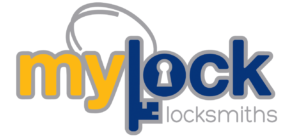No one likes being scammed. But sadly, there are a lot of people out there who would rather cheat and con people out of their money than do an honest day’s work. Since the locksmithing industry is largely unregulated, there are a fair number of dishonest, rogue locksmiths out there. And because we don’t like the idea of anyone being taken advantage of, we wanted to share a few red flags that might help you spot a scammer locksmith before you hire them.
Very Cheap Ad Price
If you spot an ad on Google for a locksmith that seems too good to be true – it probably is. The Master Locksmith Association has reported a significant problem with ‘bait and switch’ pricing, where locksmiths will advertise on Google for ultra-low rates Ground £29- £59), but will charge significantly more upon completion of the work. Because anyone can pay for an ad, it makes it difficult for consumers to sift scammers from legitimate locksmiths. A good way to avoid this is to ask any locksmith for a rough estimate before they do any work. A legitimate locksmith will be happy to provide you with a rough price based on the details you provide, while a scammer will stick to that ultra-low price until the instant they’ve done the work.
Claiming To Be Police Recommended
Another big red flag for a rogue locksmith is the claim that they are police recommended. This is so that they can appear trustworthy, especially to older people who may be weary of letting strangers into their homes. A rogue locksmith will usually claim:
Police Recommendation: The police do not have a list of recommended locksmiths, nor do they recommend specific locksmiths. They do advise using a Master Locksmith Association-approved locksmith due to the rigorous vetting process their members go through (we should know).
Police Approved: There is no such thing as a police-approved locksmith, and any company claiming to be one is lying. Again, The police DO NOT approve locksmiths.
Work with MET Police: Again this is untrue. The MET Police are aware of locksmiths using their logo to make their false claims and do pursue criminal charges against those they catch.
Don’t misunderstand us here – genuine locksmiths can and do carry out work for the police – but they will never claim to be approved or recommended by the police.
Want To Drill The Lock
If a locksmith turns up on your doorstep and their first suggestion is to drill open your door lock, you need to send them packing. A genuine locksmith will always attempt a variety of non-destructive methods first. Drilling any lock should be considered an absolute last resort, and only done if the lock is broken beyond repair, or if the lock would need to be replaced anyway- for example in the case of stolen keys.
Claims of 3rd Party Approval or Certification
This one is a bit trickier to spot, because genuine locksmiths will hold accreditations or certifications from multiple organisations and third parties. So it’s simple for rogue locksmiths to claim these same things. For example, they may make false claims of:
- Being approved or certified by a trade association (like the MLA).
- Being vetted by a third party.
- Being DBS checked.
However, they will never be able to provide proof of these accreditations. They may even display stolen logos to fool you into thinking they are genuine. A legitimate locksmith will be happy to provide evidence of their accreditations or official memberships. You will also be able to look them up through those organisations’ member lists to verify them.
Above all, trust your gut. If you aren’t sure a locksmith is legitimate, either do some digging or go elsewhere. At My Locks, we are a Master Locksmiths Association-approved company, a Which Trusted Trader, ‘hold City 3 Guilds membership and we’re safe contractor approved, so you know you’re in safe hands. For more info, just drop us a line!

